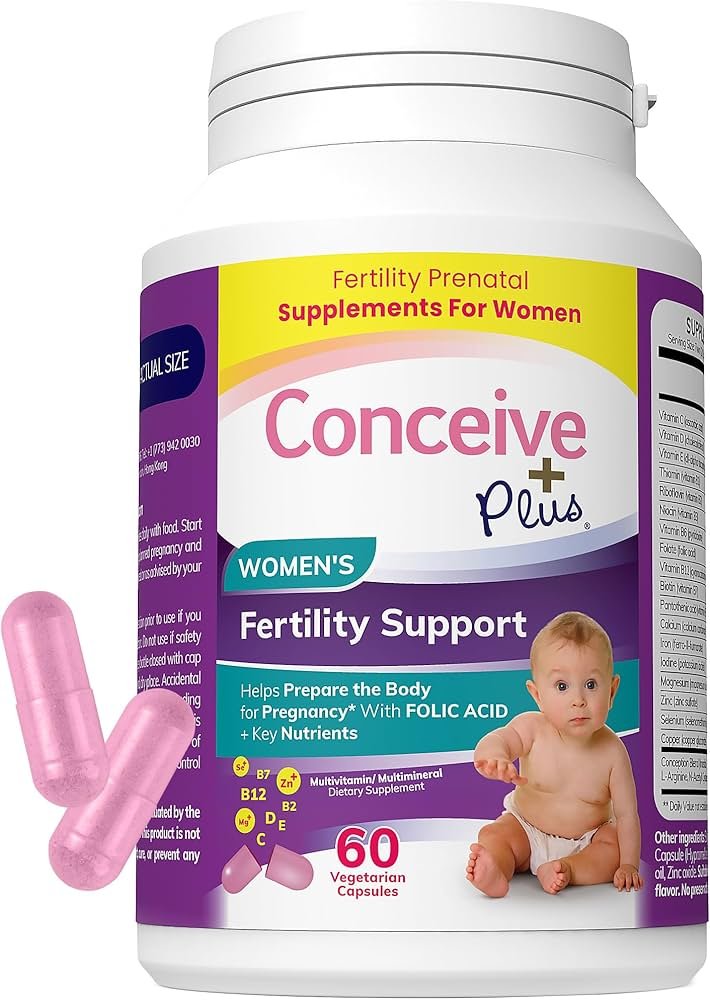Now Reading: Fertility Treatments Explained – IUI, IVF, And More
-
01
Fertility Treatments Explained – IUI, IVF, And More
Fertility Treatments Explained – IUI, IVF, And More

Fertility treatments help couples have children. They include IUI, IVF, and other methods.
Understanding these treatments can be crucial for those facing challenges in conception. With advancing medical technology, fertility treatments offer hope and possibilities for many people. Whether you are starting to explore these options or seeking more information, knowing the basics can guide your decisions.
This blog post will break down popular fertility treatments, focusing on their processes, benefits, and what you can expect. From the initial consultation to the final result, understanding each step will help you make informed choices. Dive in to learn more about IUI, IVF, and other treatments that might be right for you.
Introduction To Fertility Treatments
Embarking on the journey of starting a family can be exciting, yet sometimes it brings unexpected challenges. Fertility treatments have become a beacon of hope for many aspiring parents facing difficulties in conceiving. Understanding the options available, like IUI, IVF, and more, can help you make informed decisions about your path to parenthood.
Common Reasons For Infertility
Infertility is not uncommon, affecting many couples worldwide. Reasons can range from age-related factors to lifestyle choices. Women over 35 may experience a natural decline in fertility, while men can face issues with sperm count or motility.
Hormonal imbalances, such as polycystic ovary syndrome (PCOS), are also frequent culprits. Additionally, stress and diet play significant roles, often overlooked in fertility discussions. Taking a closer look at these factors can provide clarity and direction.
Advancements In Fertility Science
The field of fertility science has made significant strides in recent years. Treatments like IVF (In Vitro Fertilization) and IUI (Intrauterine Insemination) are now more accessible and have higher success rates. These advancements offer hope and alternatives for those struggling to conceive.
New technologies, such as genetic screening, allow for healthier pregnancies by minimizing the risk of genetic disorders. Moreover, personalized treatment plans cater to individual needs, enhancing the chances of success. Have you considered how these innovations might impact your fertility journey?
It’s essential to stay informed about these developments. Whether you’re just starting to explore fertility treatments or considering your options, understanding these breakthroughs is key. This knowledge empowers you to make decisions best suited for your family’s future.

Intrauterine Insemination (IUI)
Intrauterine Insemination (IUI) is a straightforward fertility treatment. It involves placing sperm directly into the uterus. This method increases the chances of sperm reaching the egg, helping couples conceive.
Intrauterine Insemination (IUI) is a common fertility treatment. It offers hope to couples facing infertility issues. IUI is less invasive compared to other procedures. It is often considered a first step in assisted reproduction. Understanding IUI can help in making informed decisions.
Procedure Overview
During IUI, sperm is placed directly in the uterus. This increases the chances of sperm reaching the egg. The procedure is timed with ovulation. The doctor monitors the cycle closely. It usually involves a simple office visit. First, sperm is collected and prepared. Then, a catheter is used to insert sperm. The entire process takes a few minutes. There is minimal discomfort reported by most patients.
Ideal Candidates For IUI
IUI suits couples with certain conditions. Women with irregular ovulation may benefit. It helps when sperm count is low. Couples with unexplained infertility are often considered. It can assist those with cervical mucus issues. Same-sex couples may choose IUI as an option. It is less suitable for women with blocked fallopian tubes. It’s important to consult a specialist. They will determine if IUI is right for you.
In Vitro Fertilization (IVF)
IVF is a popular fertility treatment involving the combination of eggs and sperm outside the body. It offers hope to couples facing infertility, allowing them to experience parenthood. Understanding IVF is essential in exploring various fertility treatments available today.
In Vitro Fertilization (IVF) is a widely known fertility treatment. It involves combining an egg and sperm outside the body. This method helps couples struggling to conceive naturally. IVF offers hope to many longing for a child.
How IVF Works
IVF starts with stimulating the ovaries. Doctors give medication to produce multiple eggs. Once the eggs mature, they are retrieved using a small needle. The next step is fertilization. Specialists mix the eggs with sperm in a lab dish. This process creates embryos. After a few days, one or more embryos are placed into the uterus. This is known as embryo transfer. If an embryo implants successfully, it leads to pregnancy.
Success Rates And Factors
IVF success rates vary by age and health. Younger women often have higher success rates. Lifestyle factors also play a role. Smoking and obesity can reduce IVF success. The quality of the eggs and sperm is crucial. Some clinics have higher success rates. It’s important to choose a reputable clinic. Emotional support is vital during the IVF journey. Many couples seek counseling to cope with stress.
Comparing IUI And IVF
Fertility treatments offer hope to many couples longing for a child. Among the options, Intrauterine Insemination (IUI) and In Vitro Fertilization (IVF) are common. Understanding their differences helps in choosing the right path.
Cost Differences
IUI is generally less expensive than IVF. IUI costs range from $300 to $1,000 per cycle. Costs rise with added medications. IVF costs are much higher, often $12,000 to $15,000 per cycle. Prices increase with additional treatments or genetic testing.
Time Commitment And Processes
IUI involves a simple procedure. It requires less time, typically a few hours. The process includes monitoring ovulation and inserting sperm directly into the uterus. IVF demands more time and effort. It involves stimulating ovaries, retrieving eggs, and fertilizing them outside the body. The embryo is then placed into the uterus. This entire process can take several weeks.
Other Fertility Treatments
Exploring fertility treatments can be overwhelming. While IUI and IVF are popular, there are other options. These treatments offer hope to many couples.
Intracytoplasmic Sperm Injection (ICSI)
ICSI involves injecting a single sperm directly into an egg. This method is used when sperm quality is poor. It helps couples where male infertility is an issue.
ICSI is performed alongside IVF. It is a precise technique that improves fertilization chances. Many couples find it successful.
Egg And Sperm Donation Options
Some couples need donor eggs or sperm. This option is for those with genetic concerns or fertility issues. Donor eggs or sperm increase the chance of pregnancy.
Egg donation involves using eggs from another woman. Sperm donation uses sperm from a donor. Both options help couples start a family when natural conception is not possible.
Many clinics offer these services. They provide thorough screening and support. This ensures the health and safety of all involved.
Lifestyle And Fertility
Understanding fertility treatments like IUI and IVF can be overwhelming. Yet, lifestyle choices play a crucial role in enhancing fertility. Small adjustments in daily habits can have a big impact. Let’s explore the connection between lifestyle and fertility in detail.
Impact Of Diet And Exercise
Eating a balanced diet boosts reproductive health. Fresh fruits, vegetables, and lean proteins support fertility. Omega-3 fatty acids found in fish are beneficial. Limit processed foods and excessive sugars. These can harm fertility.
Regular exercise maintains a healthy weight. This is vital for fertility. Both underweight and overweight conditions can affect ovulation. Aim for moderate exercise. Activities like walking, swimming, or cycling are great options.
Stress Management Techniques
Stress impacts fertility negatively. It disrupts hormonal balance. Incorporate stress-relief techniques into your routine. Deep breathing exercises are effective. They calm the mind and body.
Meditation is another great tool. It helps reduce anxiety. Yoga combines physical activity with mindfulness. It promotes relaxation and balance.
Regular sleep is crucial. Aim for 7-9 hours each night. A good night’s rest rejuvenates the body and mind.
Choosing The Right Treatment
Selecting the right fertility treatment can be challenging. Options like IUI and IVF offer different benefits and procedures. Understanding these can help make informed decisions about family planning.
Choosing the right fertility treatment can feel overwhelming. With options like IUI (Intrauterine Insemination) and IVF (In Vitro Fertilization), how do you decide which path to take? The choice is deeply personal and unique to your situation. It involves careful thought and consideration of various factors that could impact your journey to parenthood.
Consultation With Fertility Specialists
The first step is to consult with a fertility specialist. These professionals have the expertise to guide you through available treatments. During your consultation, ask questions about success rates, potential risks, and what each procedure involves.
Remember, this is your journey. If you don’t understand something, ask for clarification. A good specialist will ensure you feel informed and comfortable with your choices.
Personal And Financial Considerations
Your personal circumstances will play a significant role in your decision. Consider factors like your age, health history, and how long you’ve been trying to conceive. Also, evaluate your emotional readiness for the treatments.
Financial considerations are equally important. Fertility treatments can be costly, and insurance coverage varies. Create a budget and explore all financial options. Check if your insurance covers specific treatments or if there are payment plans available.
Making a decision can be challenging. What is most important for you in this journey? Is it the speed of treatment, the cost, or the level of medical intervention? Weigh these aspects carefully, and remember, you are not alone on this path.
Choosing the right treatment requires patience and research. By considering all aspects, you can make an informed decision that aligns with your personal and financial situation.
Emotional Support And Resources
Fertility treatments can be a rollercoaster of emotions. Many people feel overwhelmed and uncertain during this journey. Emotional support and resources are crucial. They help individuals cope and find strength. Knowing there are people who understand can make a big difference.
Coping With Treatment Challenges
Fertility treatments often bring unexpected hurdles. Stress and anxiety can be common. People might feel isolated and worried about outcomes. It’s important to acknowledge these feelings. Finding healthy coping mechanisms can be helpful. Meditation and journaling are excellent ways to manage stress. Some might find solace in hobbies or exercise. Creating a supportive environment is key. Share thoughts with loved ones. They can offer comfort and understanding.
Support Groups And Counseling
Connecting with others in similar situations can be healing. Support groups provide a sense of community. Members share experiences and tips. Hearing others’ stories can be reassuring. It reminds people they are not alone. Many groups meet online or in-person. Counseling offers a private space to express feelings. Therapists can help navigate emotions. They offer strategies for dealing with stress. Professional guidance can be empowering. It helps build resilience and hope.
Future Of Fertility Treatments
Exploring fertility treatments like IUI and IVF reveals promising advancements. Techniques are becoming more effective and accessible. Future innovations may offer better outcomes for couples seeking to start a family.
The future of fertility treatments is a fascinating frontier, bringing hope to many aspiring parents. As technology advances, so do the possibilities for new solutions that could enhance success rates and make treatments more accessible. The horizon holds exciting potential for those navigating fertility challenges.
Emerging Technologies
New technologies are rapidly changing the landscape of fertility treatments. Artificial Intelligence (AI) is being leveraged to improve the accuracy of embryo selection in IVF, increasing the chances of a successful pregnancy. AI algorithms analyze vast amounts of data to identify the most viable embryos, a task previously reliant on human expertise.
Another promising technology is the use of 3D printing to create artificial ovaries. This innovation could potentially restore fertility for women who have lost ovarian function, allowing them to conceive naturally. Imagine the impact on women who have undergone chemotherapy and lost their ability to conceive.
Gene editing tools like CRISPR are also being explored to correct genetic disorders at the embryonic stage. While still in its infancy, this could someday prevent inherited diseases before birth. It’s a controversial yet groundbreaking approach that could redefine preventive medicine.
Potential Breakthroughs On The Horizon
Scientists are optimistic about the development of lab-grown gametes. This technique involves creating eggs and sperm from stem cells, offering hope to individuals who cannot produce their own. It could be a game-changer for same-sex couples and those facing infertility due to medical treatments.
Another potential breakthrough is the advancement of non-invasive prenatal testing. These tests could provide detailed insights into the health of an embryo without the need for invasive procedures. Early detection of potential issues could lead to more informed decisions for parents-to-be.
Cryopreservation technology is also advancing, with improvements in the freezing and thawing processes. This ensures higher survival rates for eggs and embryos, providing more flexibility and options for family planning. It’s empowering to know you can preserve fertility until the right time to start a family.
As these technologies develop, it’s crucial to consider their ethical implications. What do you think about the balance between innovation and ethics in fertility treatments? Your thoughts could shape the future of how these technologies are used.
The future is indeed bright for fertility treatments, filled with promising advancements that could redefine what’s possible. Whether you’re starting your journey or supporting someone on theirs, staying informed about these developments can make a real difference.
Frequently Asked Questions
What Is More Effective, Iui Or Ivf?
IVF is generally more effective than IUI. IVF offers higher success rates, especially for older women or those with fertility issues. However, IVF is more expensive and invasive compared to IUI. Consult with a fertility specialist to determine the best option for your specific situation.
What Are The Three Main Types Of Fertility Treatments?
The three main types of fertility treatments include medication to stimulate ovulation, assisted reproductive technology (ART) like IVF, and surgical interventions to address reproductive issues. These treatments aim to enhance fertility and increase the chances of conception. Consult a healthcare provider to determine the most suitable option.
What Are The 5 Stages Of Ivf?
The 5 stages of IVF are: ovarian stimulation, egg retrieval, sperm collection, fertilization and embryo culture, and embryo transfer. Each stage is crucial for successful in vitro fertilization. The process aims to assist couples in achieving pregnancy.
Are Multiples More Common With Iui Or Ivf?
Multiples are more common with IUI due to multiple eggs being fertilized. IVF allows better control over embryo transfer.
Conclusion
Fertility treatments can feel overwhelming. IUI and IVF are common options. Each offers unique benefits and challenges. Couples should research and consult with doctors. Knowing your options is key. Treatments continue to advance, offering hope to many. Support from family and friends is important.
Emotional well-being matters too. Stay informed and ask questions. Every journey is unique and personal. Make the best choice for your family.



















